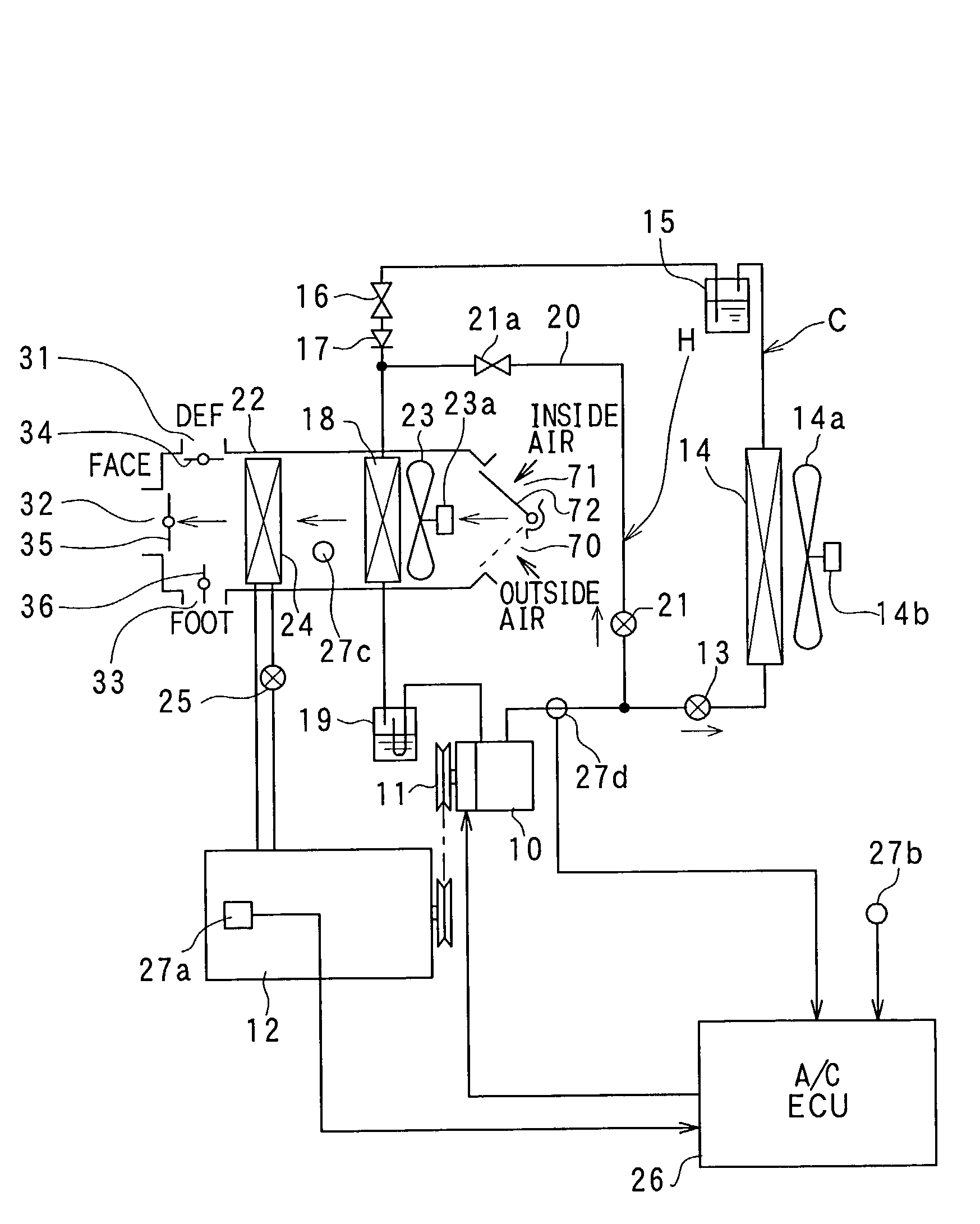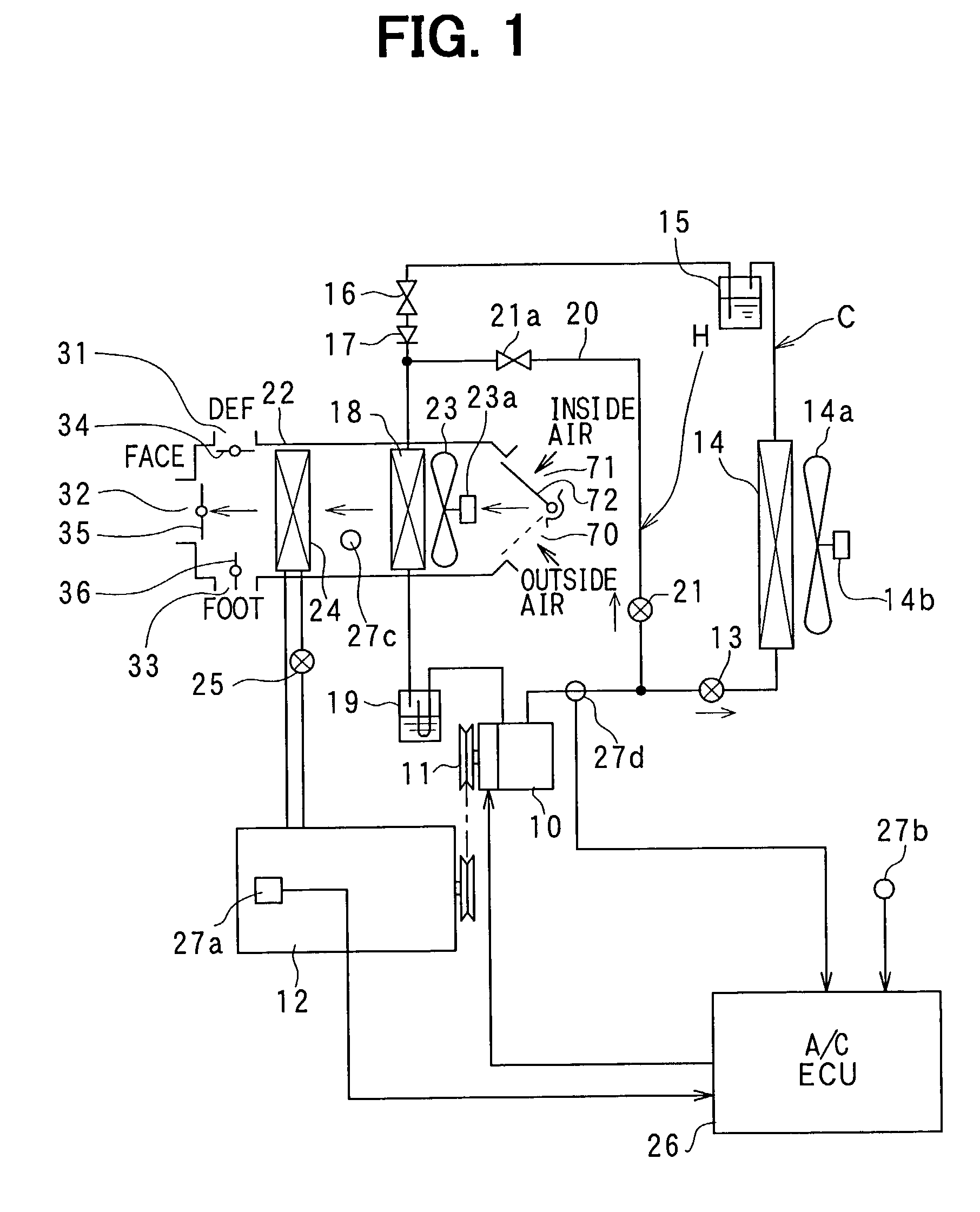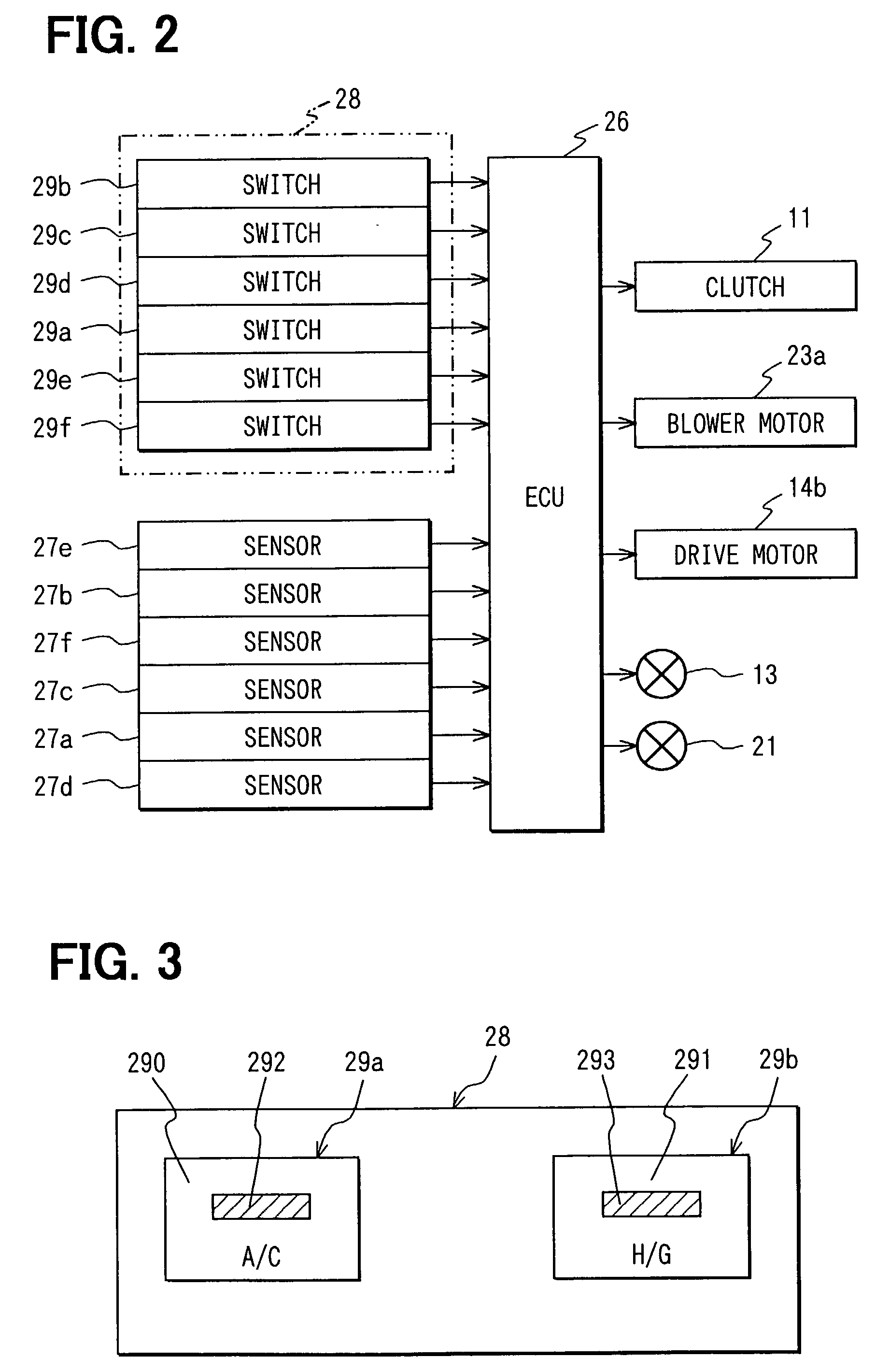Vehicle air conditioner with hot-gas heater cycle
a technology of heater cycle and vehicle air conditioner, which is applied in the direction of heating types, instruments, domestic cooling apparatus, etc., can solve the problem that the hot-gas heating mode cannot be performed
- Summary
- Abstract
- Description
- Claims
- Application Information
AI Technical Summary
Benefits of technology
Problems solved by technology
Method used
Image
Examples
first embodiment
[0019] (First Embodiment)
[0020] A vehicle air conditioner according to the first embodiment is shown in FIG. 1. A compressor 10 is driven by a water-cooled vehicle engine 12 through a solenoid clutch 11, and is constructed by a fixed-capacity swash-plate compressor, for example. A discharge port of the compressor 10 is connected to a condenser 14 through a cooling solenoid valve 13, and an outlet of the condenser 14 is connected to a receiver 15 for separating refrigerant into gas refrigerant and liquid refrigerant and for storing therein the separated liquid refrigerant. The condenser 14 is disposed in an engine compartment together with the compressor 10 and the like, and is an exterior heat exchanger where refrigerant is heat-exchanged with outside air blown by an electric cooling fan 14a. An outlet of the receiver 15 is connected to a thermal expansion valve 16 constructing a cooling decompression device, and an outlet of the thermal expansion valve 16 is connected to an inlet o...
second embodiment
[0039] (Second Embodiment)
[0040] In the first embodiment, when both switches 29a, 29b are turned on at the same time, any one of the cooling mode and the hot-gas heating mode is selected in the refrigerant cycle based on the outside air temperature TAM. However, in the second embodiment, this selection is performed based on an inside air temperature TR in place of the outside air temperature. As shown in FIG. 5, in the second embodiment, steps S150, S160 are different from the first embodiment shown in FIG. 4. At step S150, it is determined whether or not the outside air temperature TAM is in the low outside-temperature area where the hot-gas heating mode is required, in the same manner at step S110. Then, at step S160, it is determined whether or not the inside air temperature TR in the passenger compartment is equal to or lower than a predetermined air temperature (e.g., 10.degree. C.). When the inside air temperature TR is equal to or lower than the predetermined air temperature,...
third embodiment
[0043] (Third Embodiment)
[0044] As shown in FIG. 6, in the third embodiment, step S170 is provided in place of step S160 in the second embodiment. At step S170, it is determined whether or not an outside-air inlet mode is selected in the air-conditioning operation. When the outside-air inlet mode is selected, the hot-gas heating mode is automatically selected, and the heating operation in the passenger compartment is rapidly started. When an inside-air inlet mode is selected, the cooling mode is automatically selected.
[0045] When the outside-air inlet mode is selected in the winter, the heat load is increased due to the suction of low-temperature outside air, thereby increasing the necessity for the hot-gas heating mode. When the inside-air inlet mode is selected in the winter, the heat load is reduced due to the suction of inside air having a higher temperature than outside air, and a windshield is readily clouded due to the suction of inside air having higher absolute humidity tha...
PUM
 Login to View More
Login to View More Abstract
Description
Claims
Application Information
 Login to View More
Login to View More - R&D
- Intellectual Property
- Life Sciences
- Materials
- Tech Scout
- Unparalleled Data Quality
- Higher Quality Content
- 60% Fewer Hallucinations
Browse by: Latest US Patents, China's latest patents, Technical Efficacy Thesaurus, Application Domain, Technology Topic, Popular Technical Reports.
© 2025 PatSnap. All rights reserved.Legal|Privacy policy|Modern Slavery Act Transparency Statement|Sitemap|About US| Contact US: help@patsnap.com



